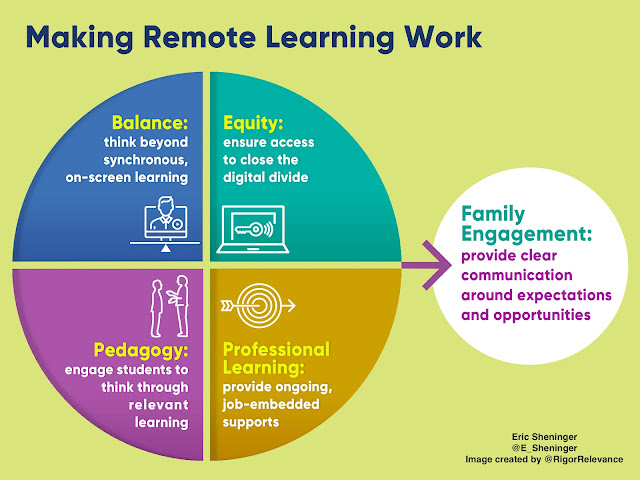If only everything could be simple. Life is anything but an easy journey. While this, for the most part, has been manageable in the past, the pandemic has upended professional and personal lives. Just when there is a glimmer of light at the end of the tunnel, a new variant materializes. For now, Omicron is the current curveball. As I write this post on the first day of 2022, I can't help but reflect on the resilience educators showed the year before. They stepped up to the plate every time for kids and each other because that is in their DNA. As the curveballs kept coming, they hit them. In the midst of immense adversity, they persevered.
What the future holds, no one can know for sure. Many schools have or will be making the decision to revert back to some form of remote learning. While this can be frustrating and challenging, educators have been here before. The silver lining is that lessons learned in the past can be leveraged to make it a smoother process. There were many successes when it comes to remote learning that have value now and will for years to come. I made sure to capture these in chapter 6 of Disruptive Thinking in Our Classrooms. Good teaching and leadership shine through no matter the circumstance. If you are in need of remote learning resources I have you covered. Just click HERE.
For schools that do not go back to remote learning, the curveball will be high rates of absenteeism. In the case of students being out, we will most likely see hybrid learning come back into the picture. Just like in the case of remote learning, educators have been there and done that to ensure learning continues. Throughout the pandemic, I captured successful hybrid learning strategies from the schools where I was coaching on the topic. You can access those HERE.
Another curveball comes in the form of the emotional and physical impact on educators. While they valiantly and selflessly continue to serve students, the pandemic has taken its toll on them. I shared the following in a previous post:
Educators are also in desperate need of social and emotional support. Many teachers are at their wit's end, and who could blame them. Morale and mental health are suffering as board meetings spiral out of control, and the pandemic rages on. Administrators can lessen staff load by offering mental health days, covering classes, getting rid of meetings, providing grading grace periods, and eliminating non-instructional duties. Grace and empathy can be shown through electronic polling to see what they need. Bigger lifts include finding ways to add additional time for planning or securing outside counseling services.
We cannot ignore the other educators who need social and emotional support, including counselors, coaches, instructional aides, administrators, or anyone else who serves students. While they are typically more behind the scenes, some are suffering as well. Here is where Central Office, boards of education, families, and community members can step up. Extending breaks, thank you cards, substituting, or food items can go a long way to help all educators cope a little bit better.
A systematic approach employ's a Maslow's before everything else lens. If we don't take care of all of our people – students, teachers, support staff, administrators – our education system could be damaged in ways that will be felt for generations.
With 2021 in the rear mirror, one can only be more hopeful for the year ahead. There will be curveballs, but educators will keep hitting them.



No comments:
Post a Comment